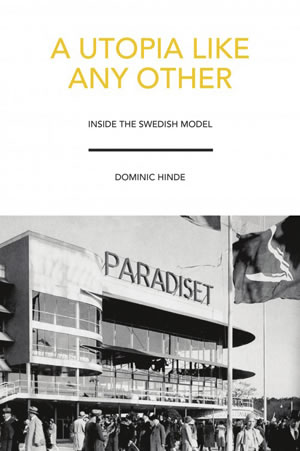In the year of the 500th anniversary of Thomas More’s Utopia, it is not surprising that reflections on the possibility of what Erik Olin Wright labels a “real utopia” appear. Whilst readers and critics still struggle with the intention and ambiguous meaning of More’s utopia, common parlance seems to persist in interpreting utopia as mere blue sky thinking, castles in the air or, even worse, dangerous totalitarian thinking that results in despotic systems. Especially after 1989, the end of history, the end of utopia seemed to be the end of ideology (and thus the end of a fundamental human desire for a better world). The equation of utopia with ideology assumes that neoliberalism is not an ideology, but a science. But is neoliberalism nothing else than endless exploitation, wrapped in the coat of “ultra-logical utopianism”, which draws its persuasiveness from the basic structural elements of a cult religion?
The socialism promoted and practised in Sweden and other Scandinavian countries, however, was never condemned in this vein and has been elevated in recent years to a real-life utopia. Sweden has ranked very high in progress and prosperity markers of late in terms of gender equality, sustainability and happiness. The US presidential candidate Bernie Sanders singled out Sweden and its neighbours as “a blueprint for a new America”, and indeed Scotland’s recent political advances are very much influenced by the Swedish model.
Dominic Hinde’s well-researched book A Utopia Like Any Other: Inside the Swedish Model somewhat resumes Andrew Brown’s project Fishing in Utopia: Sweden and the Future That Disappeared (2008). Hinde’s project is to look at facets of Swedish society (A Workers’ Utopia, Democratic Utopia, A Feminist Utopia, Ecotopia, etc.), to explore in more detail and critically where the line is “between utopian fiction and reality”. Whilst the Swedish model – a robust political and economic equipoise between class and gender – is anchored in certain unshakeable political foundations, Hinde shows through case studies that Sweden has struggled with neoliberal, post-war capitalist pressures on its society and continues to do so – just read Maj Sjöwall and Per Wahlöö or Henning Mankel as an illustration of this. Like everywhere in Europe, the far right has risen in Sweden as a reaction to Sweden’s responsible hospitality to refugees, trade unions are struggling more to maintain workers’ fair pay and rights, and the welfare system is under siege.
The point of More’s idea of utopia was NOT to strive for perfection (which is impossible), but to strive towards a better society that accommodates and cares for all citizens. Hinde’s book underscores, though, that whilst Sweden is far from perfect, it indicates a path worth pursuing.








